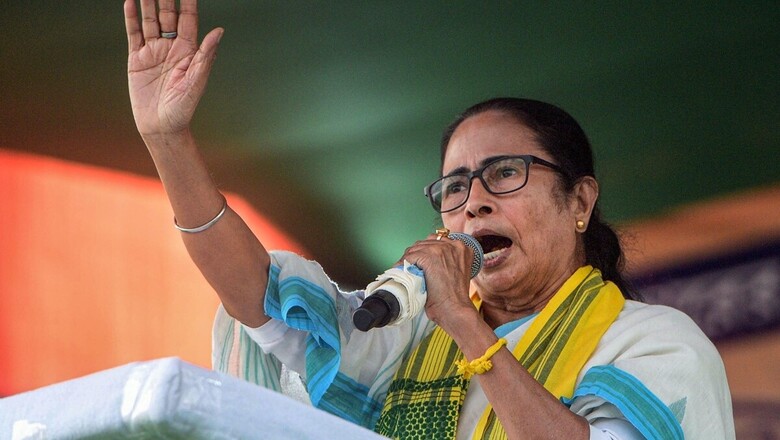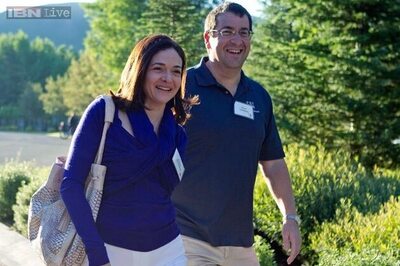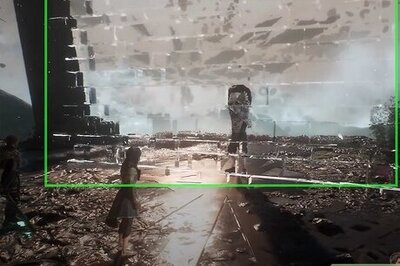
views
No one has done as much to consolidate minority votes in West Bengal as Mamata Banerjee. She openly attributed her rise to power in 2011 to the 27 per cent Muslim population in the state and went to the extent of justifying an overtly partisan approach in public policy and governance. Yet, hours before the third phase of polling in Bengal, scheduled on April 6, Mamata Banerjee was scared of a probable split in minority votes vis-à-vis consolidation of the majority votes in the BJP’s favour.
“Don’t split minority votes, don’t vote on Hindu-Muslim lines,” a national newspaper quoted her saying, from the Trinamool heartlands of South 24 Parganas and Hooghly, on the outskirts of Kolkata, on Saturday.
The fear is palpable. The Trinamool Congress (TMC) was visibly on the back foot, in the first two phases of polling in 60 seats in the forested parts of the state, with low share of Muslim votes. If she must find solace, the BJP was already strong in those areas.
The crucial phases
But the next 75 seats going to polls in the third and fourth phase in South 24-Parganas, Howrah, Hooghly and parts of Cooch Behar in the North are crucial for her to remain in the fight. Among these districts, Hooghly has the lowest Muslim vote share, roughly 16 per cent, and the BJP was leading in half of the 18 Assembly segments here in the 2019 Lok Sabha elections.
Cooch Behar has nearly 26 per cent Muslim population but the votes of the Scheduled Castes, who account for an estimated 50 per cent population in the district, helped the BJP report a lead in most Assembly segments in 2019. In Howrah, however, the BJP managed a lead in only one of the 16 Assembly segments. In this district, the Muslim population stands at close to 26 per cent.
ALSO READ| In the Hotly Contested Bengal Elections, Muslim Votes Can Make or Break Political Fortunes
South 24 Parganas is a Trinamool bastion. The party won 29 of the 31 seats in 2016 Assembly election and maintained lead in all the 31 segments in the 2019 Lok Sabha elections. This was partly due to high Muslim population here (36 per cent approx.). All opposition parties, particularly the CPM, had alleged widespread rigging in 2019. In many booths, opposition votes were in single digits. The Trinamool Congress reported heavy leads even in constituencies like Gosaba which has nearly 88 per cent Hindu population, with 63 per cent belonging to Scheduled Castes.
With the Election Commission keeping a close watch to prevent rigging this time and consolidation of Hindu votes gaining further momentum, the BJP may gain at least half-a-dozen Hindu majority seats—like Sagar, Gosaba, Patharpratima, Kakdwip, Sonarpur, Jaynagar—in South 24 Parganas, this time.
The BJP’s gains may increase in case of a split in Muslim votes between the Trinamool Congress and the Samyukta Morcha of the CPM, the Congress and the Indian Secular Front of Abbas Siddiqui. Basanti in South 24 Parganas, for example, has an estimated 34 per cent Muslim and 58 per cent Hindu population. Consolidation of the Hindu votes and split in the Muslim votes may tilt the balance in the BJP’s favour.
Bhaijan holds the key
The threat is real. The culprit is Abbas Siddiqui, an influential cleric and a part of the Siddiqui family, which is the custodian of the famous Furfura Sharif shrine in Hooghly district. Popularly referred as ‘Bhaijan’, Siddiqui has following among the less-educated Bengali Muslim youth, mostly in Howrah, Hooghly, and North and South 24 Parganas.
Barring the name of the outfit, there is little that is secular in the political narrative of Siddiqui. He wants to be the numero uno of Bengali Muslims and is directly confronting the Trinamool Congress. His election meetings have been a crowd-puller and if this gets translated into ballots, Mamata Banerjee has a lot to worry.
ALSO READ| Game on in Bengal: As BJP Sets Attacking Field, Mamata Must Play Captain’s Knock to Win Test
In 2019 Lok Sabha elections, the Trinamool Congress reported a lead of over 17,000 votes against the BJP in Chanditala Assembly constituency in Hooghly, riding on the 35 per cent Muslim votes. In this election, the Samyukta Morcha expects Abbas to bring up to 10 percent Muslim votes in the constituency in its fold. On behalf of the Morcha, the CPM has fielded its politburo member Md Salim from Chanditala.
The 2021 Assembly election is a direct follow-up to the 2019 Lok Sabha elections in West Bengal, with both anti-incumbency and Hindu vote consolidation gaining momentum. In this Modi versus Didi contest, there is little space for others and both the Congress and particularly the Left may feel the heat.
The only difference in the pack is Abbas Siddiqui. His ISF may not end up with many seats. In fact, it is debatable if he will get any. However, he may dictate results in a number of seats. And, that’s enough to make Mamata Banerjee jittery, if not nervous.
BJP’s weaknesses
There is, however, one factor that may come to the Trinamool’s rescue. The BJP’s candidate selection for third and fourth phase polling has sparked serious resentment among the party workers. This, coupled with the hasty inclusion of turncoats from the Trinamool Congress, particularly in Howrah and Hooghly, ahead of the polls have impacted the BJP’s image. This impact could be felt across the region. The BJP secured a lead of over 10,000 votes in Singur Assembly segment in 2019. In 2021, the party has given ticket to four-time Trinamool MLA, Rabindranath Bhattacharjee, and invited criticism from both supporters as well as party cadre.
Such misjudgments may not matter if the Modi wave is too strong, as was witnessed in Uttar Pradesh in 2017. Otherwise, the BJP might lose a few potential seats in Howrah and Hooghly simply due to its organizational failures.
Read all the Latest News, Breaking News and Coronavirus News here. Follow us on Facebook, Twitter and Telegram.

















Comments
0 comment